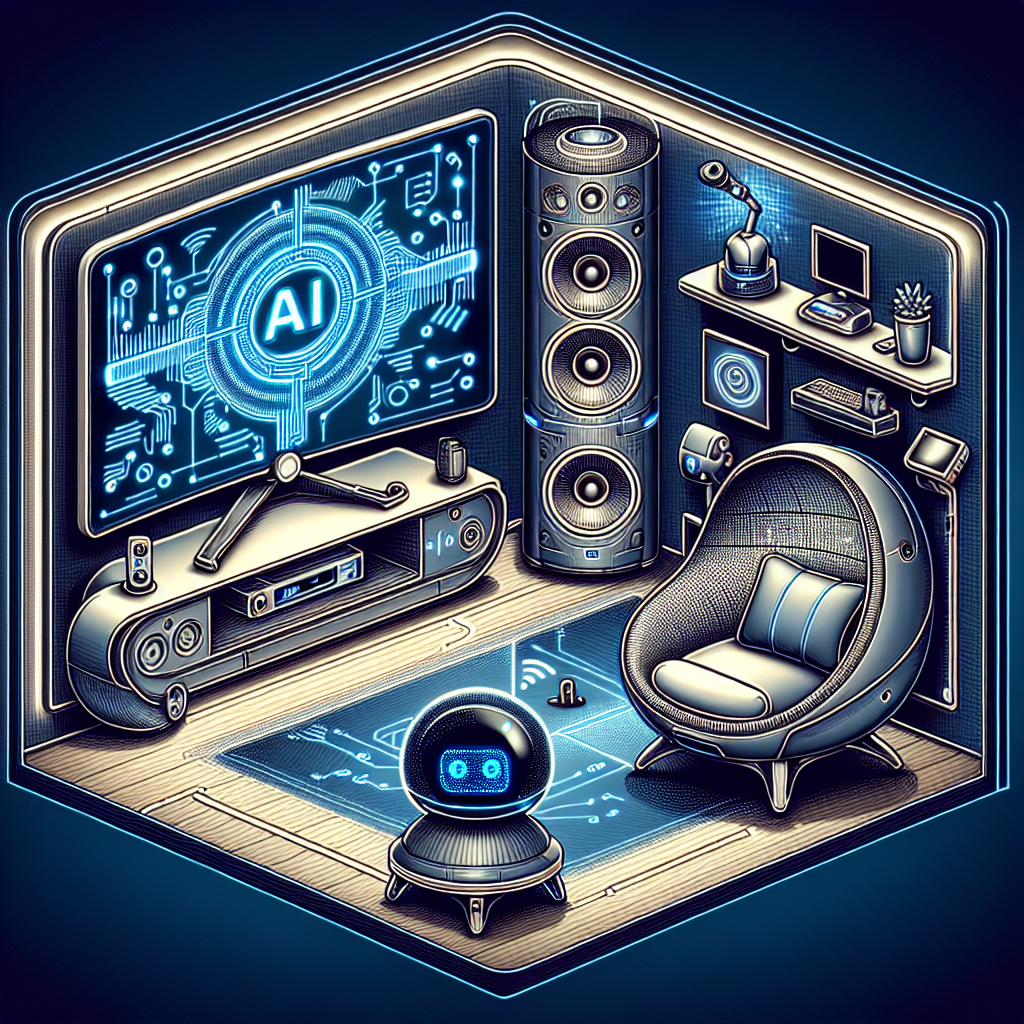The Future of AI Tools in Home Entertainment
Artificial Intelligence (AI) has been transforming various industries, and the entertainment sector is no exception. AI tools are being integrated into home entertainment devices to provide users with personalized experiences, improved content recommendations, and enhanced interaction with their devices. As technology continues to evolve, the future of AI tools in home entertainment looks promising with advancements in voice recognition, facial recognition, and emotion detection.
AI and Personalized Content Recommendations
One of the key benefits of AI tools in home entertainment is the ability to provide personalized content recommendations based on user preferences and viewing habits. AI algorithms analyze user data, such as viewing history, ratings, and interactions, to recommend movies, TV shows, and music that are tailored to individual preferences.
For example, streaming services like Netflix use AI algorithms to recommend content to users based on their viewing history and ratings. These recommendations are constantly updated as users interact with the platform, providing a more personalized and engaging viewing experience.
In the future, AI tools in home entertainment will become even more sophisticated in analyzing user data and providing personalized recommendations. These tools will be able to predict user preferences and behavior more accurately, leading to a more immersive and enjoyable entertainment experience for users.
Voice Recognition and Interaction
Another exciting development in AI tools for home entertainment is the integration of voice recognition technology. Voice-activated devices like smart speakers and virtual assistants allow users to control their entertainment systems using voice commands, making it easier and more convenient to navigate through content and access information.
For example, voice-activated remote controls can be used to search for movies, adjust volume, and control playback without having to manually input commands. Virtual assistants like Amazon’s Alexa and Google Assistant can also be integrated into home entertainment systems to provide hands-free control and access to a wide range of content.
As technology continues to improve, voice recognition in home entertainment devices will become more accurate and responsive, allowing users to interact with their devices in more natural and intuitive ways. This will enhance the overall user experience and make home entertainment more accessible to a wider range of users.
Facial Recognition and Emotion Detection
Facial recognition technology is another area where AI tools are making an impact in home entertainment. Devices equipped with facial recognition technology can identify users and provide personalized recommendations and content based on their preferences.
In addition to facial recognition, AI tools can also detect emotions through facial expressions and gestures. This technology can be used to enhance the user experience by analyzing facial cues and adjusting content accordingly. For example, if a user is showing signs of boredom or disinterest, the AI system can suggest a different movie or TV show to keep them engaged.
In the future, facial recognition and emotion detection technology will play a larger role in home entertainment, allowing devices to respond to user emotions and preferences in real-time. This will create a more interactive and immersive entertainment experience for users, making home entertainment more engaging and personalized.
FAQs:
Q: How does AI improve content recommendations in home entertainment?
A: AI algorithms analyze user data, such as viewing history, ratings, and interactions, to provide personalized content recommendations based on individual preferences. This leads to a more immersive and engaging entertainment experience for users.
Q: How does voice recognition technology enhance home entertainment systems?
A: Voice recognition technology allows users to control their entertainment systems using voice commands, making it easier and more convenient to navigate through content and access information. This enhances the overall user experience and makes home entertainment more accessible to a wider range of users.
Q: What is the role of facial recognition and emotion detection in home entertainment?
A: Facial recognition technology can identify users and provide personalized recommendations based on their preferences. Emotion detection technology can analyze facial expressions and gestures to adjust content based on user emotions, creating a more interactive and personalized entertainment experience.
In conclusion, the future of AI tools in home entertainment looks bright with advancements in voice recognition, facial recognition, and emotion detection. These technologies will continue to enhance the user experience by providing personalized content recommendations, hands-free control, and interactive features. As technology continues to evolve, AI tools will play an increasingly important role in shaping the future of home entertainment.

